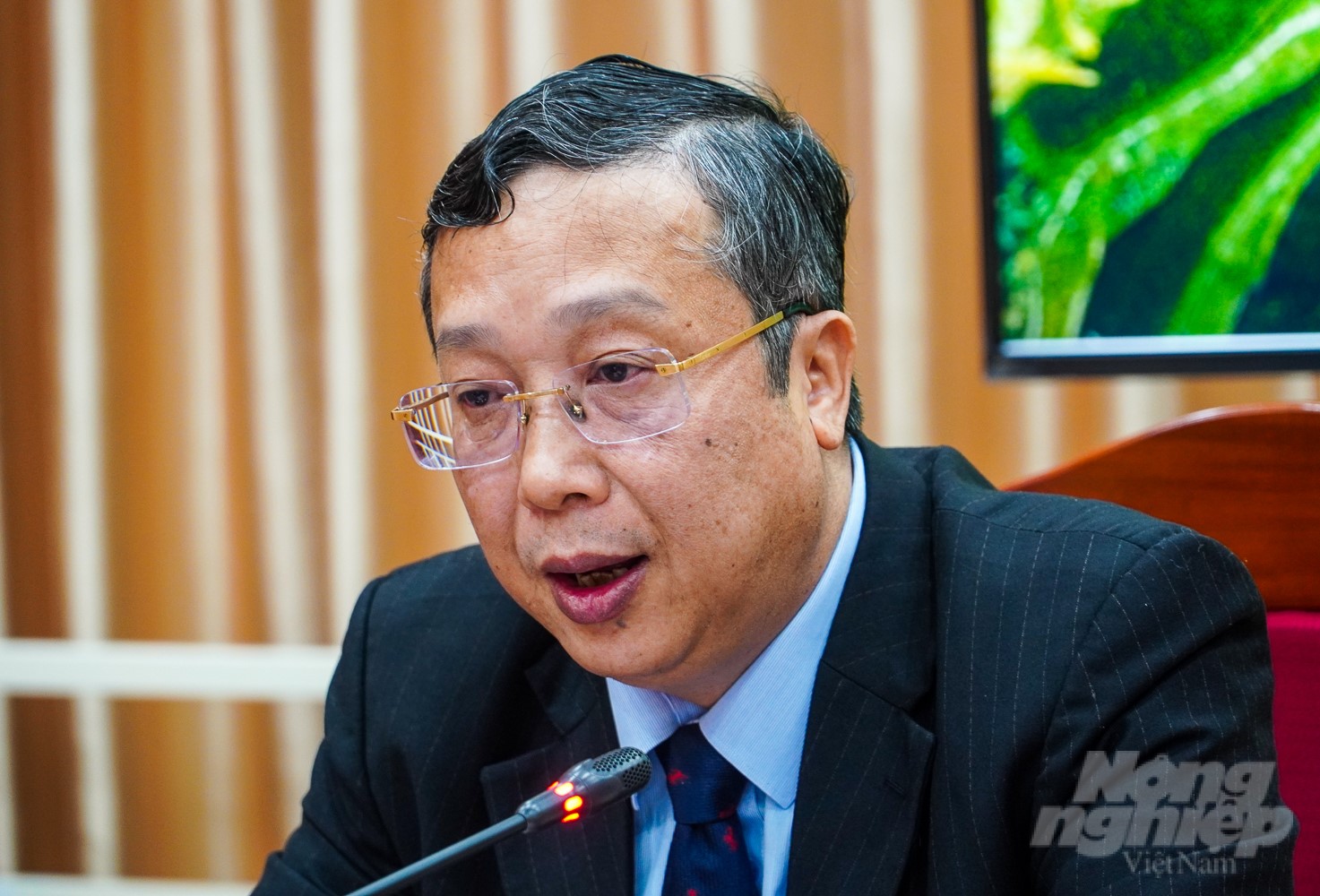- Giới thiệu
- Nhóm Công tác
- Tin tức
- Thông tin về FTA
- Tài Liệu
- Sự kiện
- Liên hệ
Vietnam is ready to call for international cooperation for emissions reduction efforts
On the morning of September 14, Deputy Minister of Agriculture and Rural Development Hoang Trung chaired the opening of a multi-party workshop on supporting the Vietnamese rice industry working group in its efforts to reduce emissions

According to Deputy Minister Hoang Trung, rice is one of the crops that emits the most emissions. Still, it also has a high potential to reduce emissions if reasonable production solutions and practices are applied. Therefore, the Ministry of Agriculture and Rural Development has planned to develop the rice industry with the vision of high-quality, nutritious, and sustainable production, establishing strong links between export companies creating a supply chain and industry transformation from single value to integrated multi-value.
From World Bank studies and the results of the Agricultural Competitiveness Project (ACP) and the Vietnam Sustainable Agricultural Transformation Project (VnSAT) implemented by the Ministry of Agriculture and Rural Development in the Mekong Delta provinces from 2012 - 2022, the potential to reduce emissions in the rice chain in the Mekong Delta is quite significant.
The Project for sustainable development of 1 million hectares specializing in high-quality, low-emission rice cultivation associated with green growth in the Mekong Delta (1 million hectares of high-quality rice program) is one of the efforts to promote this transition.
Applying the sustainable rice farming process "one must, five reductions" for the Project of 1 million hectares of high-quality, low-emission specialized rice that the Ministry of Agriculture and Rural Development is about to submit to the Prime Minister can help reduce emissions by about 4-6 million tonnes of CO2e per year.
Process and reuse straw to grow mushrooms and make fertilizer. It is estimated that the Mekong Delta produces about 30 million tons of straw each year. If this work is done well, it can reduce 1 - 2 million tonnes of CO2e/year.
Reducing post-harvest and rice processing losses from 12-13% to 7-8% can help reduce emissions from 0.5 - 1 million tonnes of CO2e/year.
Converting a part of the ineffective rice area (about 500,000 hectares) to other high-value, low-emission crops (such as forestry trees and perennial fruit trees) can reduce emissions by about 2.5 - 3.5 million tonnes of CO2e/year.
Thus, if applied well, the above measures can help the Mekong Delta reduce 8 - 12 million tonnes of CO2e per year (an average of 10 million tonnes of CO2e) from the rice industry chain alone.
More than 1.4 million rice-growing households in the Mekong Delta will directly benefit and reduce environmental pollution caused by intensive rice farming. If emissions reductions are reviewed, and carbon credits are granted, farmers will have a significant source of income to reinvest in production and upgrade infrastructure to increase production efficiency.
In addition, the Ministry of Agriculture and Rural Development is also implementing the Food Innovation Center to provide green technology solutions in agricultural production in the ASEAN region.
Deputy Minister Hoang Trung emphasized that Vietnam is ready to call for cooperation and support from international organizations in the region and the world, especially from the private sector, to realize these programs.
The Deputy Minister assessed that the World Economic Forum and Grow Asia are Long-term partners of the Ministry of Agriculture and Rural Development, Supporting Vietnam's Rice PPP Group in transforming the industry towards low emissions and mobilizing the private sector to invest in green technology across the entire value chain, facilitating the achievement of appropriate investment rates for technology and innovation making Vietnam a typical low-emission rice producer in the ASEAN region.
The Rice PPP Group has made good connections with the Food Innovation Center, focusing on sustainable rice. It is expected to link national and international innovation networks and promote digital technology and innovation to develop intelligent rice value chains. This center will help scale and accelerate the transformation of Vietnam's rice industry to become a powerhouse in sustainable, green, and low-emission rice products.
With about 7 million hectares of rice planted annually, Vietnam has become the third largest rice exporter in the world. In 2022, export turnover will reach 7.1 million tonnes, valued at US$ 3.46 billion.
Tin liên quan
PSAV Attends the 30th Anniversary Celebration of Cargill Vietnam2025/10/23
Plant health management helps increase coffee yield up to 15%2025/10/16
An Giang to host 2025 OCOP forum for sustainable development2025/09/25
Viet Nam and France foster cooperation on blue economy and sustainable environment2025/09/29
Agriculture and Environment exhibition ready for National celebration2025/08/27



 Điều lệ hoạt động
Điều lệ hoạt động



















































